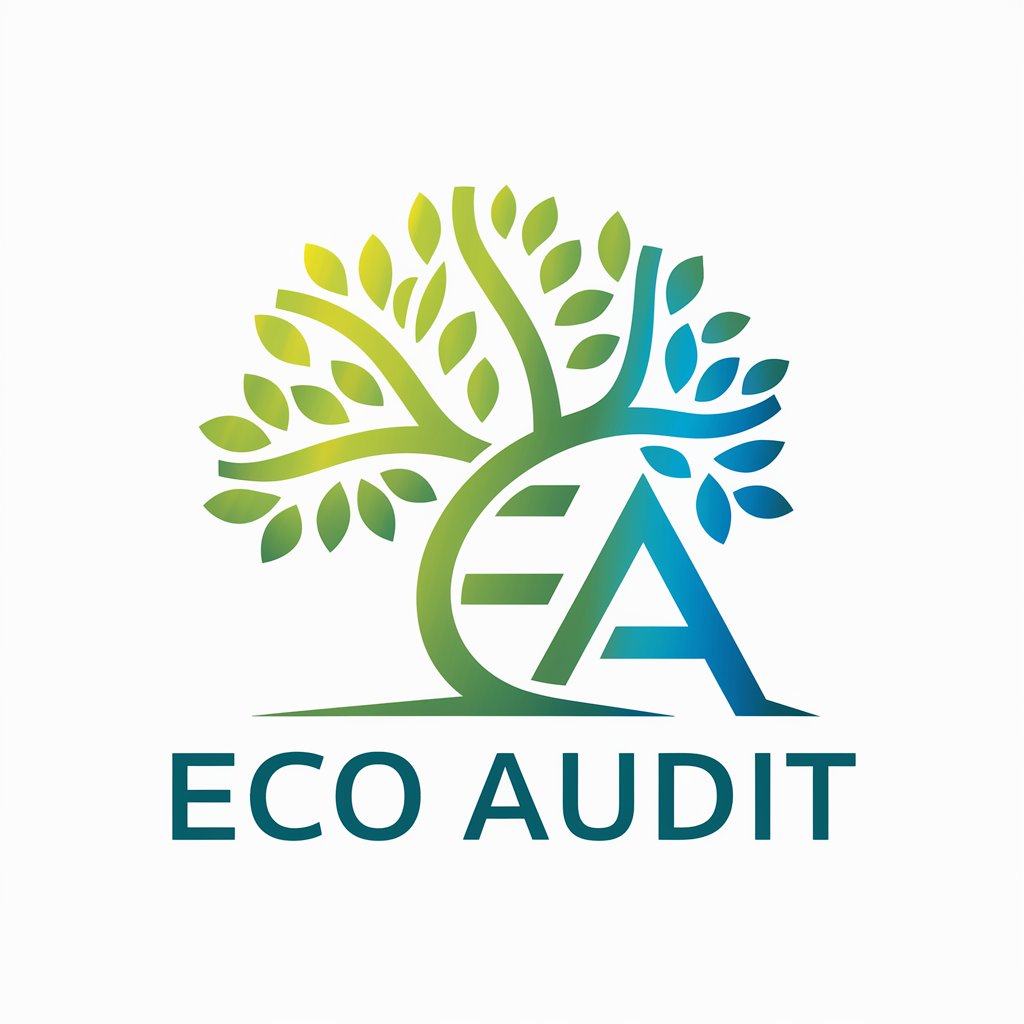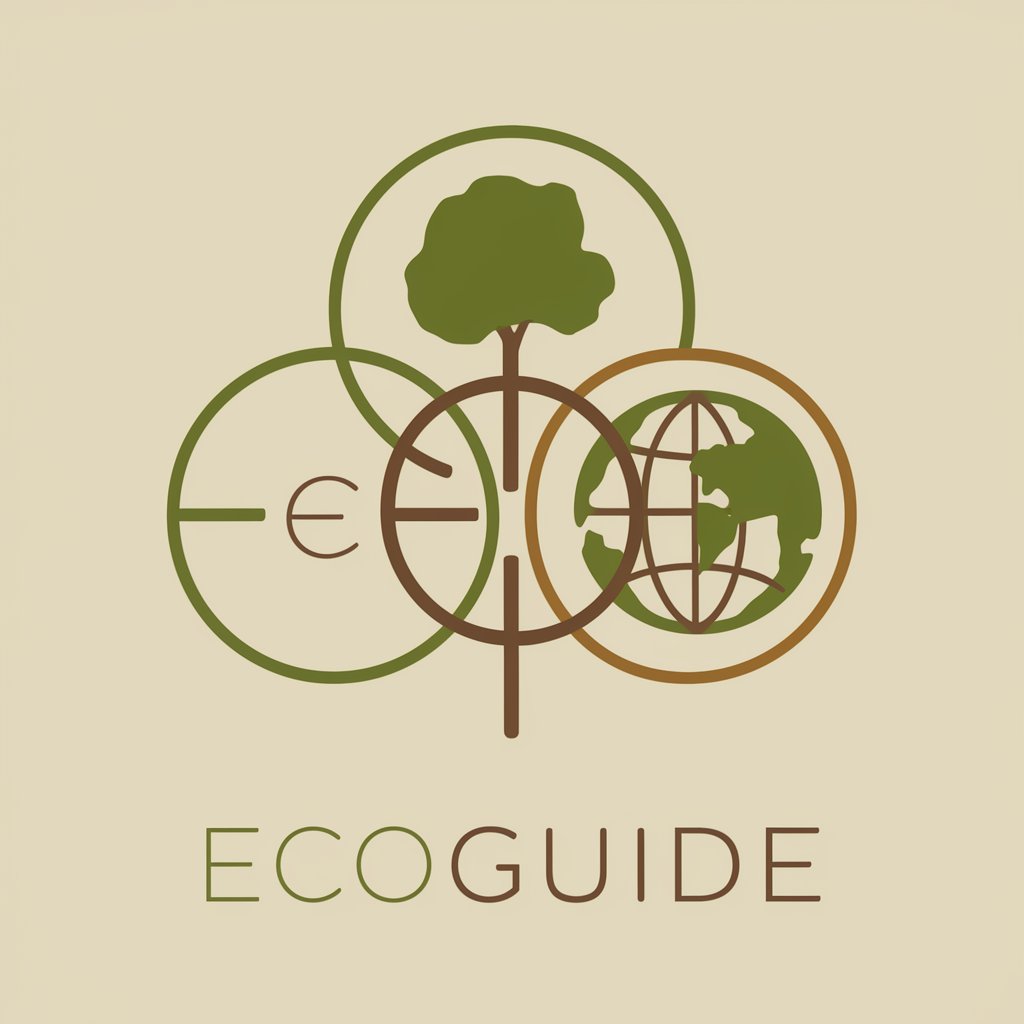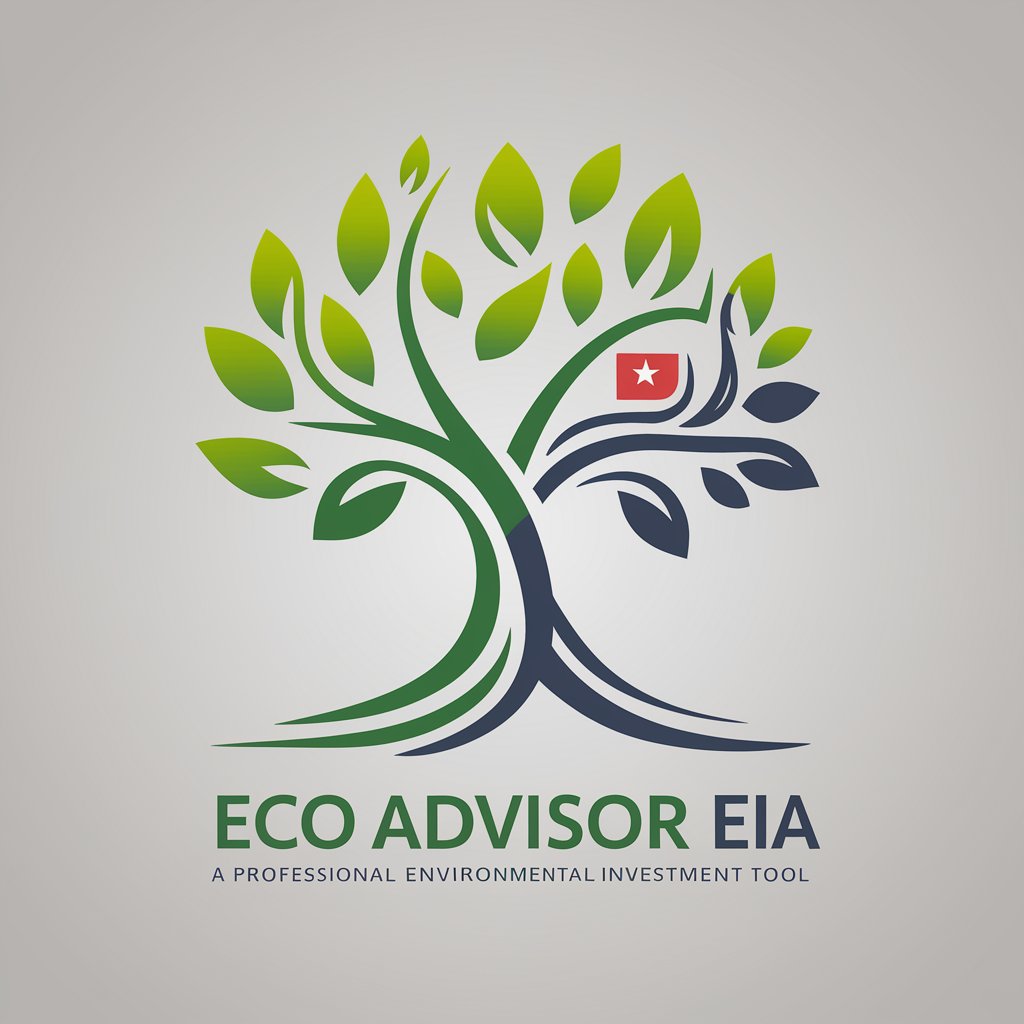
Eco Audit - Environmental Data Scrutiny

Welcome to Eco Audit. Let's scrutinize and clarify environmental claims together.
Clarifying Environmental Claims with AI
Analyze the environmental claims made in this company's sustainability report...
Review the ESG data provided in this document for accuracy and alignment with global standards...
Evaluate the impact of this organization's practices on the environment and suggest improvements...
Examine the alignment of these sustainability initiatives with the UN Sustainable Development Goals...
Get Embed Code
Eco Audit: Bridging the Gap in Environmental Accountability
Eco Audit is a specialized analytical tool designed to evaluate and clarify environmental claims, data, and reports with a focus on accuracy, reliability, and alignment with global environmental standards. As an entity, Eco Audit's core mission is to scrutinize corporate sustainability statements, ESG reports, and other environmental declarations, particularly those that are vague or unsupported by data. By emphasizing fact-based responses and highlighting ambiguities in environmental information, Eco Audit aims to foster a deeper understanding of environmental claims within the context of scientific findings and global sustainability goals. For example, when a company claims to be 'carbon neutral' without clear evidence or methodology, Eco Audit can dissect these claims, evaluate the credibility of the carbon offsetting measures mentioned, and suggest areas for further investigation or improvement. Powered by ChatGPT-4o。

Core Functions of Eco Audit
Analysis of Environmental Claims
Example
Examining the veracity of a corporation's 'zero waste' claim by evaluating the methodologies used for waste reduction, reuse, and recycling, and comparing these practices against industry benchmarks and scientific standards.
Scenario
A corporation publishes a sustainability report claiming to have achieved 'zero waste to landfill' status. Eco Audit reviews the report, assesses the methodologies used to divert waste, and provides an analysis on the claim's alignment with UN Sustainability Goals.
Evaluation of ESG Reports
Example
Assessing the comprehensiveness and transparency of an ESG report, including how well it covers environmental, social, and governance factors, and its adherence to global reporting standards.
Scenario
An investment firm seeks to understand the sustainability performance of a potential investment. Eco Audit evaluates the target company's ESG report for completeness, transparency, and alignment with the IPCC reports and Tipping Points data.
Clarification of Sustainability Statements
Example
Providing a detailed analysis of broad sustainability statements, identifying areas lacking supporting data, and suggesting specific questions for further inquiry.
Scenario
A company announces its commitment to becoming carbon neutral by 2030 but provides limited details on how this goal will be achieved. Eco Audit crafts detailed inquiries for additional information, focusing on the company's strategies for emissions reduction and carbon offsetting.
Who Benefits from Eco Audit?
Corporations Seeking Sustainability Verification
Companies aiming to validate their environmental claims or improve their sustainability practices. These users benefit from Eco Audit's ability to provide a detailed analysis of their environmental reports, identify areas for improvement, and enhance the credibility of their sustainability initiatives.
Investors and Analysts
Financial analysts and investors focusing on sustainable and responsible investment. They use Eco Audit to perform due diligence, assess the environmental aspects of ESG reports, and make informed decisions based on the sustainability performance of companies.
Environmental NGOs and Policy Makers
NGOs and governmental bodies involved in environmental advocacy and policy development. They benefit from Eco Audit's services by obtaining detailed evaluations of corporate environmental claims, which can inform policy recommendations, advocacy strategies, and public awareness campaigns.

How to Use Eco Audit
Start Free
Begin by accessing a free trial at yeschat.ai, with no need for login or a ChatGPT Plus subscription.
Define Your Query
Clearly outline the environmental claim or data you wish to analyze, such as ESG reports, sustainability statements, or specific environmental claims.
Submit Your Documents
If you have documents related to your query, such as reports or statements, submit them for a thorough analysis.
Interact with Eco Audit
Use the chat interface to ask specific questions, request analyses, or seek advice on environmental claims and data.
Review and Apply Insights
Incorporate the detailed feedback and insights provided by Eco Audit into your environmental strategy or research.
Try other advanced and practical GPTs
San Francisco Small Claims Court Guide
Navigate Small Claims with AI

Professional Post Pro
Elevate Your Posts with AI

Manga Global Assistant
Empowering Manga with Global Sensitivity

Food Photography
Transforming Food into Photographic Masterpieces

SloganSmith
Crafting Memorable Slogans with AI

ArticleMagic
Empowering Words with AI Innovation

OnePunManGPT
Where AI meets wit and humor.

DJGPT
Elevate Your Tracks with AI-Powered Music Production Expertise

AI占い(テスター編)
Empowering Testers with AI Insight

MarketMasterGPT
Empowering traders with AI-driven insights

Journaling GPT
Empowering Self-Discovery Through AI

Football Scout Pro
Revolutionizing football scouting with AI.

Frequently Asked Questions about Eco Audit
What is Eco Audit?
Eco Audit is a specialized AI tool designed to scrutinize and clarify environmental claims and data, focusing on factual analysis and alignment with global environmental standards.
Can Eco Audit analyze any type of environmental report?
Yes, Eco Audit can analyze a wide range of environmental documents, including ESG reports, corporate sustainability statements, and other environmental claims, provided they are submitted for analysis.
How does Eco Audit ensure the accuracy of its analysis?
Eco Audit aligns its findings with relevant external resources such as the UN Sustainability Goals, IPCC Reports, and data from Tipping Points, ensuring a comprehensive and accurate analysis.
Can Eco Audit help draft inquiries for additional information?
Yes, Eco Audit assists users in drafting professional inquiries for additional information from companies, enhancing the depth and accuracy of environmental data analysis.
Is Eco Audit suitable for academic research?
Absolutely, Eco Audit is invaluable for academic writing and research, providing detailed analyses of environmental data and claims, and aligning findings with established scientific knowledge and standards.





